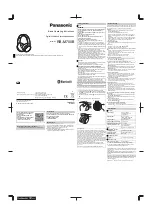
WebShare RB300
Pag. 71
A.5 FAQ
Question
Can I run an application from a remote computer over the
wireless network?
Answer
This will depend on whether or not the application is designed
to be used over a network. Consult the application’s user
guide to determine if it supports operation over a network.
Question
Can I play computer games with other members of the
wireless network?
Answer
Yes, as long as the game supports multiple players over a
LAN (local area network).
Refer to the game’s user guide for more information.
Question
What is Spread Spectrum?
Answer
Spread Spectrum technology is a wideband radio frequency
technique developed by the military for use in reliable, secure,
mission-critical communications systems. It is designed to
trade off bandwidth efficiency for reliability, integrity, and
security. In other words, more bandwidth is consumed than in
the case of narrowband transmission, but the trade-off
produces a signal that is, in effect, louder and thus easier to
detect, provided that the receiver knows the parameters of the
spread-spectrum signal being broadcast. If a receiver is not
tuned to the right frequency, a spread-spectrum signal looks
like background noise. There are two main alternatives, Direct
Sequence Spread Spectrum (DSSS) and Frequency Hopping
Spread Spectrum (FHSS).
Question
What is DSSS? What is FHSS? And what are their
differences?
Answer
Frequency-Hopping
Spread-Spectrum
(FHSS)
uses
a
narrowband carrier that changes frequency in a pattern that is
known
to
both
transmitter
and
receiver.
Properly
synchronized, the net effect is to maintain a single logical
channel. To an unintended receiver, FHSS appears to be
short-duration impulse noise. Direct-Sequence Spread-
Spectrum (DSSS) generates a redundant bit pattern for each
bit to be transmitted. This bit pattern is called a chip (or
chipping code). The longer the chip, the greater the probability
that the original data can be recovered. Even if one or more








































